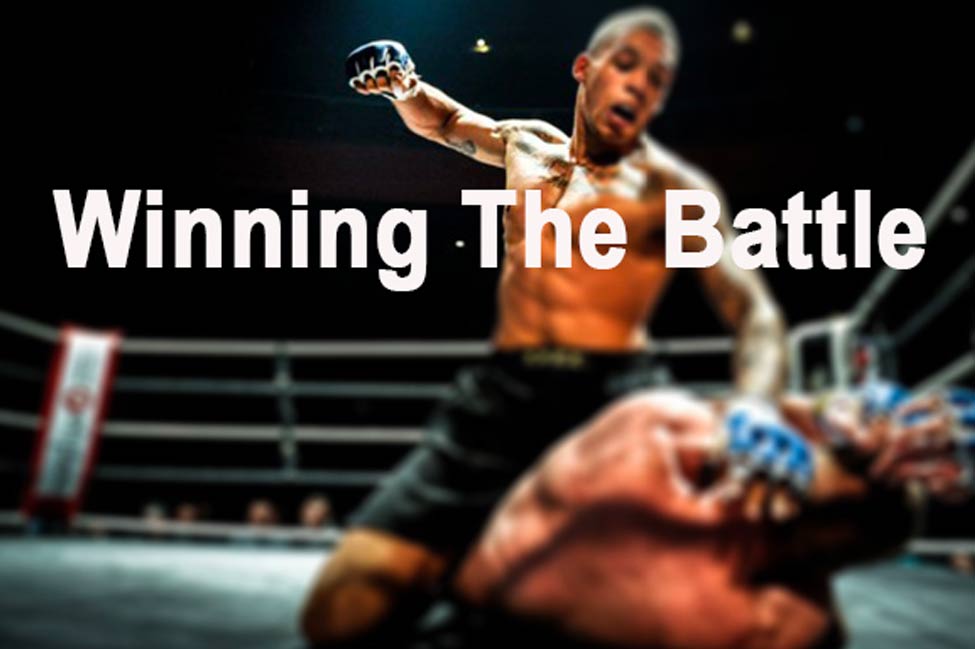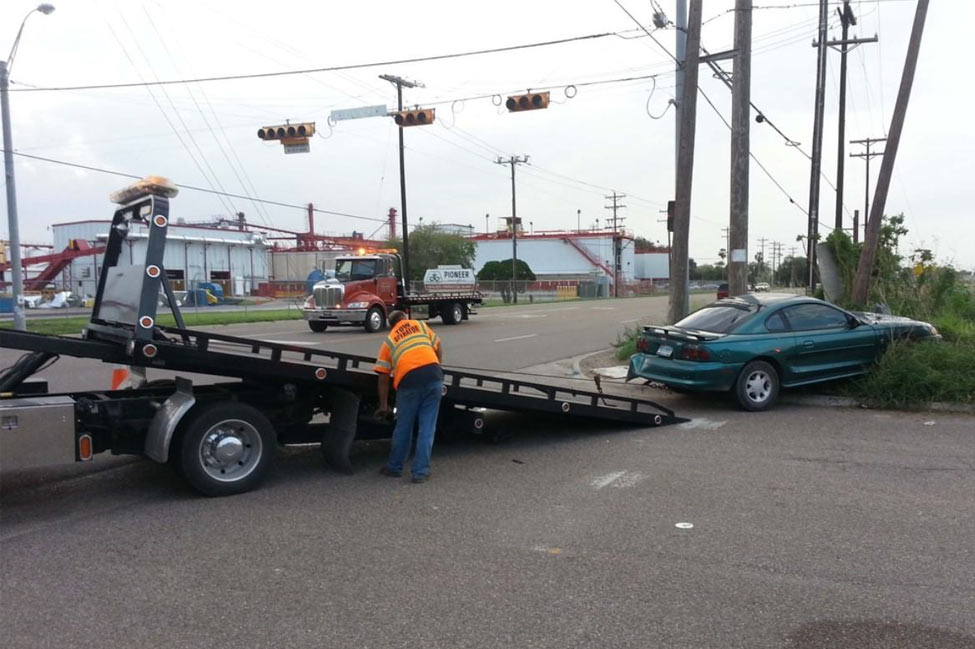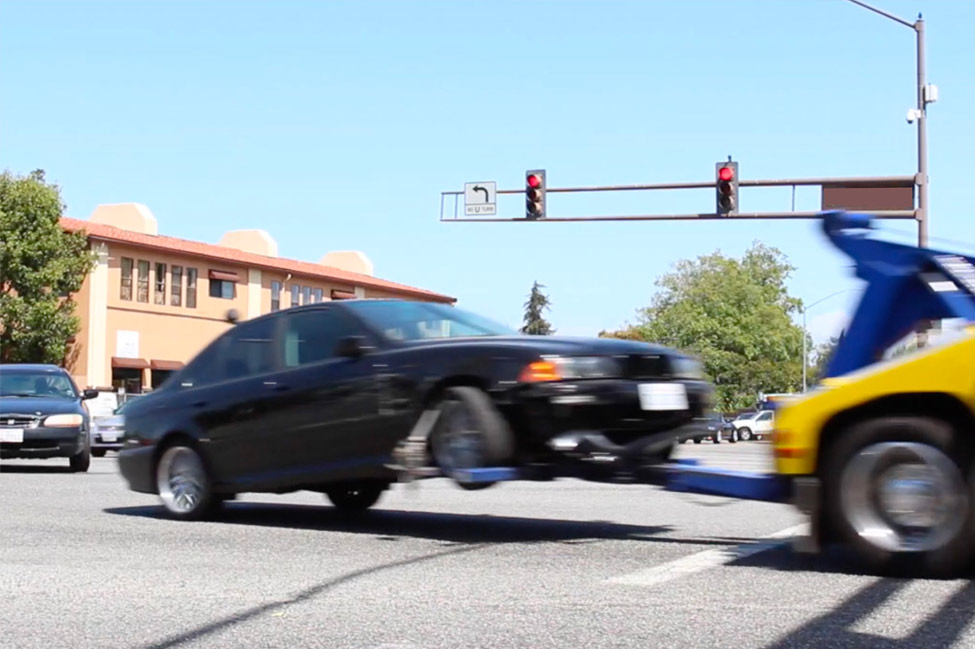Effectively dealing with angry towing customers.
“Hey…I’m not very happy with the way your company has handled this.”
These were the first words of a highly stressed father as he stabbed his finger at my face.
As he quickly stepped into my office, looking like he was ready to go all mixed martial arts on me, I pushed my chair back and readied myself for a fight.
I knew exactly why he was there- His phone call from earlier gave me a clue I’d be seeing him soon.
But why so angry?
All this…Because we towed his son’s wrecked car?
The back story: After midnight, we received a call from the Highway Patrol to recover a vehicle where the driver lost control on an ice-covered private driveway and ended up in the woods. When the wrecker driver arrived, the road conditions hadn’t gotten any better, and since the vehicle was not in traffic and we couldn’t safely hold the hill, we decided to come back the next morning to get it. We came back after the road was cleared, but somewhere along the way, the tow destination wasn’t communicated from the evening crew to the morning crew, and since we were ultimately responsible for the vehicle, we took the car to our storage facility for safe-keeping—As this was our standard operating procedure.
So here I was, challenged with relaying this information in the midst of mortal combat.
I don’t have a degree in the psychology of post-traumatic accident victims, but after having helped thousands of people wade through the aftermath of traffic accidents, I believe I’ve learned—a little bit—about how they think. And one thing I know is that when put in a position—where they have little or no control over what’s happened and what’s to follow—They freak out. And then, after a few hours or days, whatever it takes, they’ll get around to mopping up the mess. This gives them a measure of control.
Even so—their brains, nerves, or something else physiological seems to remain tender, and any small amount of negative stimuli can cause them to fly off the handle again.
Of course, anger isn’t the first choice for everyone. Some people plan for the worse. And although they sometimes stumble through the process of retrieving their belongings, haggling with the insurance company, and finally deciding what to do with their vehicle—they’re calm. They’re more relaxed as a rule, either because they’re fully covered or understand that liability-only insurance means; when an accident happens…They pay the bill. Rarely will there be an altercation or a disagreement from this lot.
Dealing with angry towing customers after a car accident.
But then there are those who never thought it would happen to them. They’re from the “Oh-No—I had an accident. Who can I blame?” crowd. Instead of carrying the right amount of insurance or accepting responsibility in the event of an accident, their idea of damage control and loss mitigation is to blame everyone involved. The way they see it is—The snow-plow driver, passing motorists, law enforcement, insurance companies, firefighters, and the towing company have all conspired against them to take their property. These folks find everyone else at fault for their misfortune, believing all who stand to profit from it are evil.
So here I stood, only 3 feet of wooden desk between me and this Goliath of a man. No sling, no stone but secure in the knowledge that we’ve done nothing wrong. My only obstacle: Helping him to understand that.
I had options—I could have come back screaming and thumping my head, maybe even stepping it up a notch and thumping my chest. But I knew—from the many mistakes I’ve made in the past—that reacting this way would only raise the stakes. And I was fairly sure he wasn’t bluffing.
Instead of making a difficult situation worse and allowing my ego to take over, I reacted in a manner he didn’t expect. I could have used reasoning and explained the services we provide, our responsibilities, the 24-hour availability we must maintain, and all the rest of it…But I didn’t.
I recognized his type—He didn’t care, at all, about our plight. He felt he was being pushed into a corner, thinking we’d purposely done the opposite of what was asked. In a calm tone, almost laughing about the confusion, I explained that it was only a miscommunication and that we’d be happy to take his son’s car to his home.
Stopped cold in his tracks from my conciliatory tone, his temperament quickly changed. He now looked and sounded more reasonable. And after a few minutes of discussing his options and finally deciding to take it to a shop, he paid the bill and apologized for overreacting.
Now you might say that I gave in because he was just about ready to kick my neck off. And yes, I may have been slightly motivated by thoughts of self-preservation, but rather than insist that I win and that he lose, I quickly looked for a solution that gave us both a victory.
Working with angry towing customers works best.
Working with customers is always best. Rather than taking an adversarial position and assuming that your needs are much greater than those of your customers, stop and take a step back. Then employ a little empathy and understanding. This can have the intended consequence of making everybody happy.






The worst part about dealing with customers is when they believe that I’ve done damage when I haven’t. This one lady insisted that I’d lost one of her wheel covers. She’d been hit in the rear and I guess the impact knocked off her wheel cover. Never found it but she wanted me to take the price of a brand new set of 4 off her bill. Didn’t do it.
Of course you want to avoid doing any more damage than necessary and YES it can be frustrating sometimes.
Customers want you to be responsible for the accident that they were involved in. You’re there to solve the problem…that doesn’t mean you’re required to make them whole again…That’s the job of the insurance companies.
You know you can’t just let them run over you. If they go too far you gotta call the police
You hit the nail on the head! Sometimes arguing and defending your position can make someone who is already very angry even more upset. Calmly standing your ground and offering solutions or assistance can deescalate behavior much faster than being defensive. I thought this story was well written. Very descriptive!
Thanks Sarah. When someone believes they’ve been wronged it’s extremely difficult to convince them otherwise. But if you have the ability to stop for a split second and look at the situation without involving your ego you’ll stand a much better chance of, at minimum keeping your cool. And then…maybe your calm demeanor will be just the thing needed to knock an angry person off balance and interrupt their rage.
I just had one call in yesterday. They were ticked at another towing company. Actually, they couldn’t stop talking about how bad the other company was. Became a point that I actually declined the call. Didn’t want that to turn into my company! I think that lady needs to read this article, haha!
Oh, how right you are! Calmly and constructively defending your position, as well as offering solutions or help, can quickly reduce the intensity of emotions and prevent the escalation of the conflict. In contrast, a defensive or aggressive stance can only make the situation worse and further upset an already angry person. And your story illustrates this well.
You’re right! Keeping calm and offering solutions can help a lot.